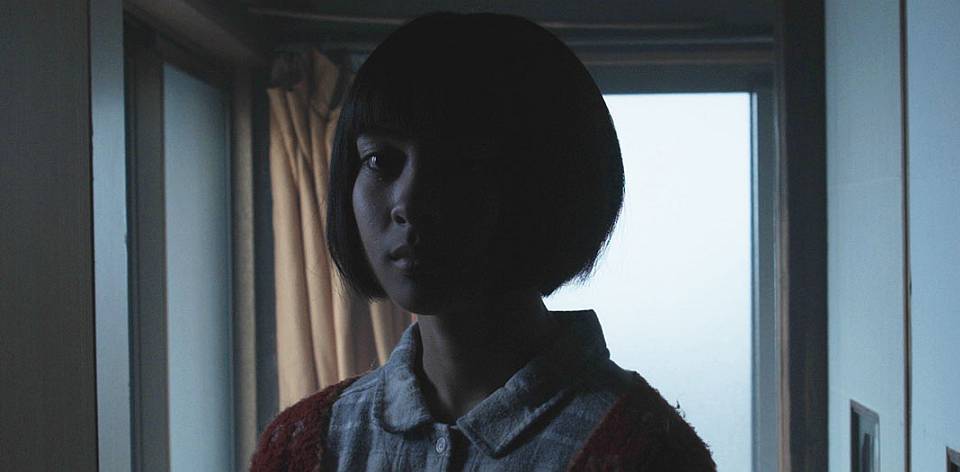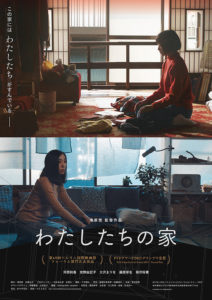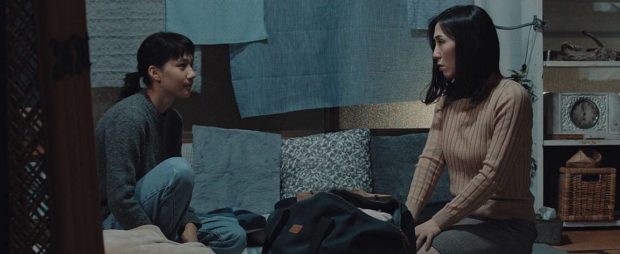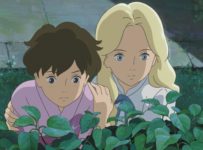You may not yet have heard of Yui Kiyohara, but she has already been getting attention at the festival circuit around the world with her debut fim. Studying under horror legend Kiyoshi Kurosawa, OUR HOUSE (わたしたちの家) was the winner of the Grand Prix at last year’s Pia Film Festival. Infused with a dreamlike haze and themes of duality, it instantly recalls an unnervingly Lynchian mystique.
The titular house has two sets of inhabitants. Seri (Nodoka Kawanishi) is a young teen girl who is struggling with the death of her father, and her mother Kiriko’s (Yukiko Yasuno) new boyfriend. On this level, the film fits nicely alongside the vast sea of coming-of-age dramas that regularly populate the cinema. Yet the other pair of figures we see in the same seaside home are Sana (Mariwo Osawa), a woman who knows her name but has inexplicably lost all other sense of self and memory, and Toko (Mei Fujiwara), the woman who takes her back to said home.
This latter storyline is ostensibly a classic ‘girl in trouble’ trope that will remind many of David Lynch’s Mulholland Drive. The similarity in plotting certainly stops at this point, but Kiyohara evokes a similar feeling of unease. Kiyohara’s fascination with the notion of people occupying the same space-time also seems to mirror a thread that’s been running through Lynch’s works at least since the original series of Twin Peaks. It’s not an overt reference by any means, but Kiyohara tries a little too hard to convey this mood.
Yet as the two scenarios subtly intersect, one might also recall some of the wider implications of David Lowery’s A Ghost Story as well. In that case, it was the very literal haunting of a home by someone unable to move on. Here Kiyohara injects her tale with some of that same supernatural eeriness. Indeed, at one point Seri tells her mother that she’s seen a ghost.
Cinematographer Ryôta Chida (The Man Who Was Eaten) has a patient lens, one that literally takes time to stop and smell the flowers. The careful placement of people and things within the spaces of the house gently emphasises the ‘sliding doors’ aspects of the film, both literal and figurative. Case in point is a sequences framed through a shōji screen door, where cutout panels look like some retro split-screen editing.
At a slender 80 minutes, Kiyohara’s brief film doesn’t have a lot of time to labour its points, but nor do we ever get far beyond the surface sensations. OUR HOUSE demonstrates Kiyohara’s keen knowledge of cinema and ability to tap into the unseen world.
[stextbox id=”grey” bgcolor=”F2F2F2″ mleft=”5″ mright=”5″ image=”null”] 2017 | Japan | DIR: Naomi Kawase | WRITERS: Noriko Katô, Yui Kiyohara | CAST: Nodoka Kawanishi, Yukiko Yasuno, Mariwo Osawa, Mei Fujiwara | RUNNING TIME: 80 minutes | DISTRIBUTOR: MIFF (AUS) | RELEASE DATE: 8 August 2018 (MIFF)[/stextbox]
2017 | Japan | DIR: Naomi Kawase | WRITERS: Noriko Katô, Yui Kiyohara | CAST: Nodoka Kawanishi, Yukiko Yasuno, Mariwo Osawa, Mei Fujiwara | RUNNING TIME: 80 minutes | DISTRIBUTOR: MIFF (AUS) | RELEASE DATE: 8 August 2018 (MIFF)[/stextbox]






